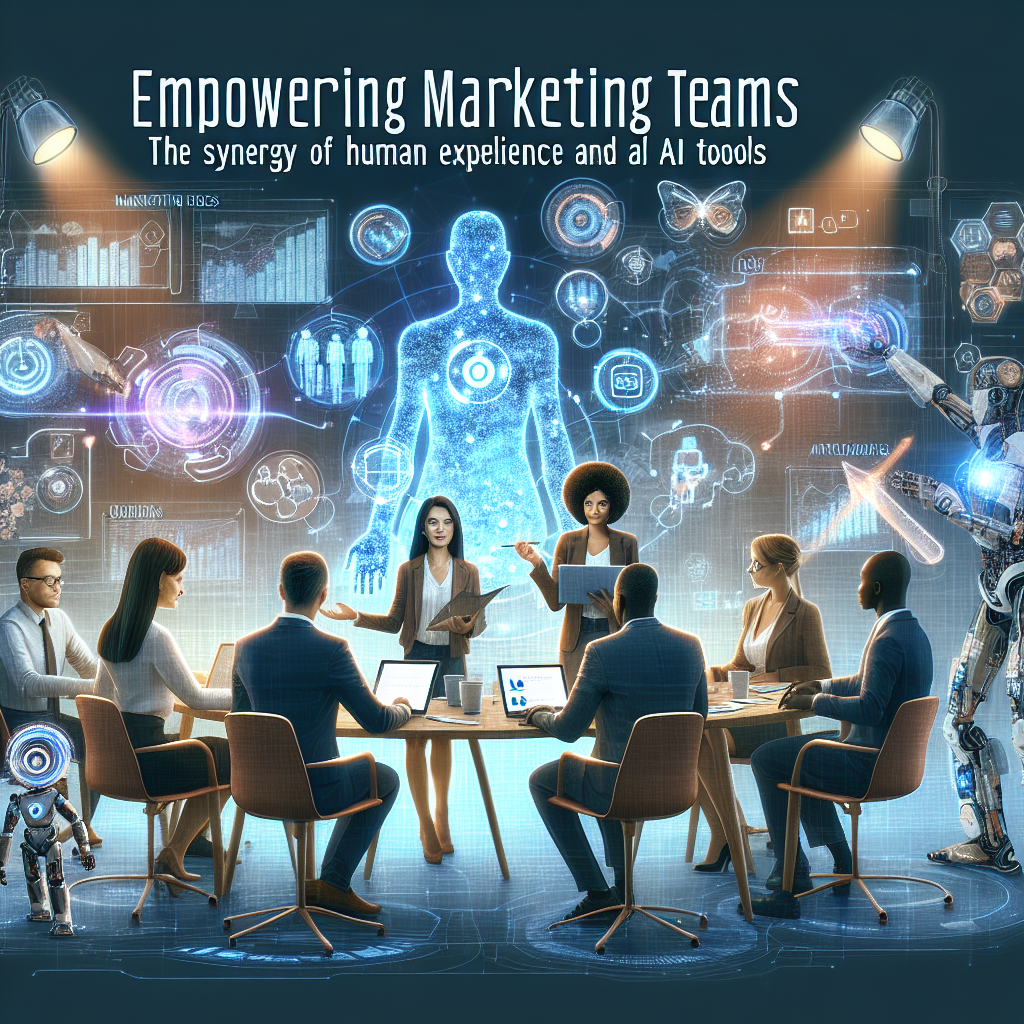In the current digital era, the marketing landscape is changing rapidly, influenced by technological advancements and evolving consumer behaviors. Leading this change is the incorporation of Artificial Intelligence (AI) into marketing strategies. This collaboration between humans and AI not only boosts marketing efforts but also transforms team operations, enabling them to utilize data-driven insights and automate processes for improved results.
Grasping the Human-AI Collaboration
The partnership between humans and AI signifies a cooperative relationship where AI tools enhance human capabilities instead of replacing them. By harnessing AI’s computational strength and data processing skills, marketing teams can make better-informed decisions, enhance customer experiences, and streamline their processes. In this collaboration, both entities play essential roles:
-
Human Creativity and Strategy: Humans contribute creativity, intuition, and strategic insight. Marketers comprehend their audience, craft engaging narratives, and forge genuine connections that resonate with consumers.
- AI Analytics and Automation: AI excels in processing large datasets, recognizing patterns, and automating routine tasks. This enables marketing teams to concentrate more on strategic initiatives and creative campaigns rather than getting overwhelmed by data analysis.
Primary Areas Where AI Enhances Marketing Teams
-
Data Analysis and Insights
AI-powered tools are capable of analyzing extensive datasets in real time, offering marketers actionable insights. By understanding consumer behavior, preferences, and trends, teams can customize their campaigns to more effectively meet audience needs. Predictive analytics can also anticipate future behaviors, allowing for proactive marketing strategies. -
Personalization at Scale
Personalization is crucial for effective marketing, and AI enables teams to provide tailored experiences for consumers. Machine learning algorithms can segment audiences based on behavior and preferences, allowing marketers to develop targeted messages and offers that resonate. This level of personalization can significantly boost customer engagement and loyalty. -
Content Creation and Curation
AI tools can aid in generating content ideas, drafting copy, and even curating content based on audience interests. Natural Language Processing (NLP) technologies can assess past content performance and suggest enhancements, empowering marketers to create more engaging materials. -
Automated Campaign Management
AI-powered automation tools can manage and optimize marketing campaigns across various channels. From email marketing to social media advertising, AI can identify the best times to engage audiences and even adjust real-time bidding strategies for paid ads, ensuring maximum ROI. - Enhanced Customer Support
AI-driven chatbots and virtual assistants manage customer inquiries in real time. These tools provide instant responses, allowing human agents to focus on more complex issues. This improves customer satisfaction and ensures a seamless user experience.
Addressing Challenges in AI Adoption
While the benefits of integrating AI are significant, challenges persist. Issues surrounding data privacy, algorithmic bias, and the necessity for human oversight are critical concerns. Marketers must ensure that AI tools are utilized ethically and transparently, building trust with their consumers. Additionally, training and upskilling the team to effectively leverage these tools is essential for maximizing the potential of the human-AI collaboration.
The Future of Marketing in the Age of AI
As AI technology advances, the collaboration between human marketers and intelligent tools will continue to strengthen. Future innovations may include deeper AI integrations, facilitating hyper-personalization and predictive decision-making on an extraordinary scale. However, even as automated solutions become more widespread, the role of human creativity, empathy, and relationship-building will remain irreplaceable.
Conclusion
The synergy between human teams and AI tools offers a robust opportunity for marketers aiming to drive growth and innovation. By embracing this collaboration, marketing professionals can elevate their strategies, engage consumers more effectively, and navigate the complexities of the digital landscape with assurance. As we anticipate the future, fostering a collaborative approach to AI not only improves marketing outcomes but also prepares the ground for a more dynamic and responsive industry.

